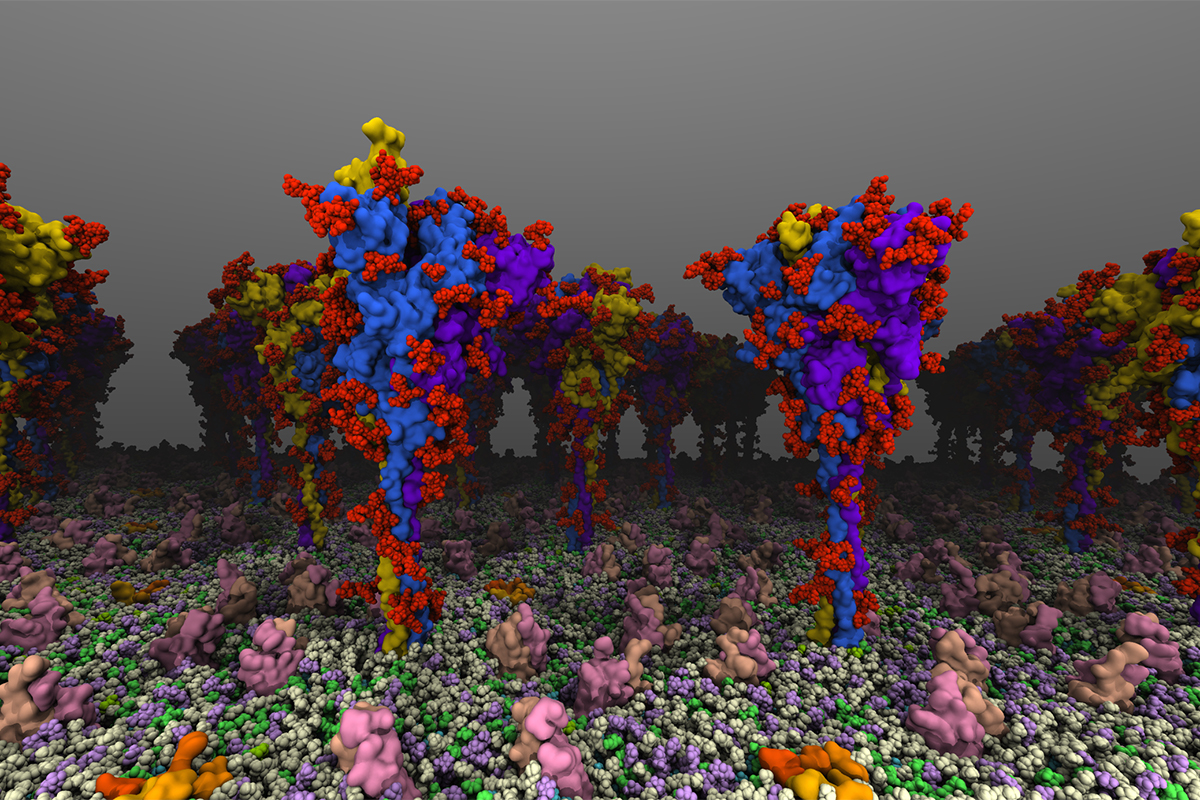Biochemistry Grad Handbook Core Courses Electives BIOC 595 Seminars Resources Contact
The Department of Biochemistry offers graduate work leading to the doctor of philosophy degree. These degrees prepare students for positions in industrial laboratories, research institutes, and government agencies, as well as for teaching, research, and administration in colleges and universities. Graduate degrees are earned through a combination of graded courses, oral and written examinations, and independent research. We empower students to design a program that aligns with their scientific and career goals.
All students accepted into the PhD program receive year-round financial support through fellowships, traineeships, or graduate assistantships, which provide a generous stipend as well as a full tuition and partial fee waiver. The department guarantees financial support to all students provided they make satisfactory progress toward the PhD degree Students are also encouraged to apply for extramural predoctoral fellowships for which they may be eligible, such as from the National Science Foundation, Howard Hughes, Ford Foundation, and other organizations and governments).
PhD in Biochemistry
The PhD in Biochemistry is earned through a combination of graded courses, oral and written examinations, and independent research.
Specific degree requirements include the successful passage of core of Biochemistry and Molecular Biology courses. In addition, advanced (400- and 500-level) elective courses in related areas, such as biophysics, cell and developmental biology, chemistry, microbiology, molecular and cellular biology, neuroscience, physics, physiology, and others, are chosen by students in consultation with their faculty advisor and vary with the research interest and background of the individual. Because the emphasis of this program is on training in research, elective course selection is defined on the basis of individual needs, enabling students to choose from the wide range of courses offered. There is no foreign language requirement for the PhD in Biochemistry. Students are required to maintain a "B" average.
In addition to courses, numerous seminars covering special topics in Biochemistry are offered. Research seminars are an integral part of the PhD program. Seminars are held weekly and feature graduate students, faculty, and visiting lecturers.
Because teaching is considered an integral component of PhD training. A minimum of one semester of teaching in lecture or laboratory courses is required. Students must complete a minimum of 96 hours of coursework and thesis research at the University of Illinois and pass written and oral examinations, including various forms of faculty review of a student's progress (graded coursework, student seminars on individual research, and so on).
Each student presents the result of his/her research to an open meeting of faculty, students, and his/her supervisory committee. The dissertation is then submitted to the Graduate College to fulfill the requirements for the degree. Most students complete their PhD training in five to six years.
Time to Degree
The average period for completion of all requirements for the PhD in Biochemistry is approximately five years. Award of the doctorate requires satisfactory performance in course work, examinations, and the presentation of a thesis based upon original research. A typical program follows:
YEAR 1
Rotate among three laboratories. Choose thesis advisor by December and begin thesis project. Complete core coursework and any deficiencies.
YEAR 2
Conduct research, complete elective coursework, one semester of teaching, pass qualifying exam in April.
YEAR 3
Conduct research, complete one semester of teaching and seminar course.
YEAR 4
Conduct research and complete seminar course.
YEAR 5
Complete seminar course, present research progress to thesis committee. Present thesis and complete final defense/examination.
Choosing a thesis advisor
Lab Rotations
New PhD students participate in a laboratory rotation program, involving three, five-week rotations in laboratories in Biochemistry and elsewhere in MCB. New students also attend a series of evening presentations, given early in the fall semester, in which Biochemistry faculty and other MCB faculty members describe their research. Students are encouraged to attend weekly seminars and talk with advanced graduate students about their research.
Lab rotations are intended to provide students with a "wet lab" experience, through which they will learn and perform laboratory procedures. Our faculty members believe that laboratory rotations are essential in helping new students become more rapidly integrated into the department and learning more about the operations of groups they may wish to join.
Students select a research advisor at the end of the first semester in the program.
Dissertation and defense
When student and advisor have determined that the student is approximately one semester from defending his or her dissertation, the student meets with the PhD Advisory/Thesis Final Committee to review the proposed content of the thesis. The department’s expectation is that by the time of this meeting the student will have sufficient material for at least one first-authored publication in a major referenced journal.
PhD candidates must present an open seminar in defense of their thesis. Following the defense, members of the Thesis Final Committee, and any other faculty member of Department of Biochemistry who so desires, meet with the student concerning the thesis. The thesis is revised, if necessary, after this meeting, and upon final approval by the Thesis Committee, deposited in the Graduate College.
Post-Graduation
Graduates from the Department of Biochemistry are employed in colleges and universities, industry, and government. Following graduation, many of our PhD students accept postdoctoral positions at major research institutions, after which they become leaders in academia and industry.
The University of Illinois offers many resources to support students with their career searches and professional developments, including the Graduate College Career Development Office. The MCB Graduate Student Association organizes a variety of professional development activities, including guest speakers and networking opportunities, throughout the year.
Contact
Kai Zhang
Associate Professor of Biochemistry and Director of Graduate Studies; Associate Head, Department of Biochemistry
Email: kaizkaiz@illinois.edu
